You’ve got sun spots
Skin aging is going to happen—but lifestyle and environmental factors can make you appear older than you are. For example, you know the sun can harm your skin, but this damage can actually age your skin’s appearance with unsightly brown patches. “As we enter our 30s, we begin to see the cumulative impact of sun damage, including sun spots,” says dermatologist Whitney Bowe, MD, author of The Beauty of Dirty Skin. “Much of the damage that causes sun spots is UV-induced, but hormones can fuel spots and splotches too.” She advises addressing the dark spots with a serum containing botanical brighteners, like licorice, soy, arbutin, and niacinamide; or talk to your dermatologist about the prescription bleaching cream hydroquinone. Here are more weird ways the sun affects your body.
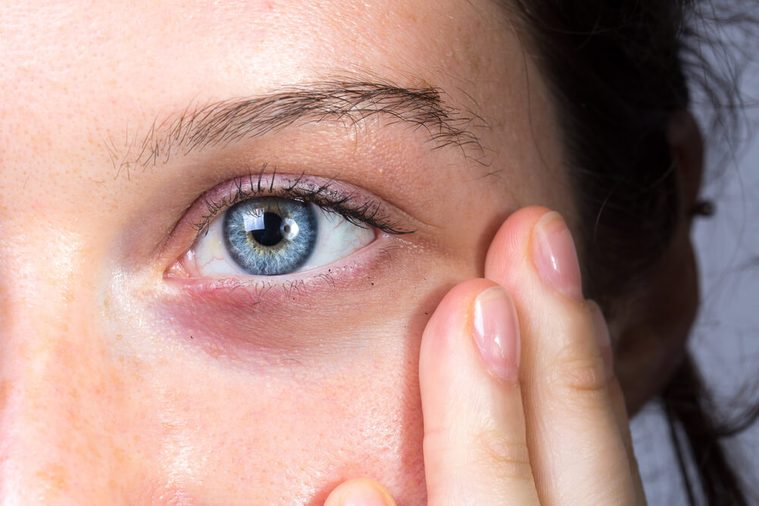
Your skin is super dry
When you’re a teen you worry about oily skin, but as your skin ages, you may encounter the opposite problem. “Gaps in the skin’s protective top layer can let out precious moisture molecules and allow in irritants,” Dr. Bowe says. The sun, smoking, and even stress can contribute to this breakdown, she says. “To keep your skin healthy and hydrated, look for moisturizing ingredients like omegas, coconut oil, ceramides, and dimethicone,” Dr. Bowe says. “A once-a-week mask—either a humectant-laden sheet or a rich overnight cream mask—can keep skin hydrated and sated, allowing anti-aging actives to perform better.” Check out more helpful tips to fight dry skin.
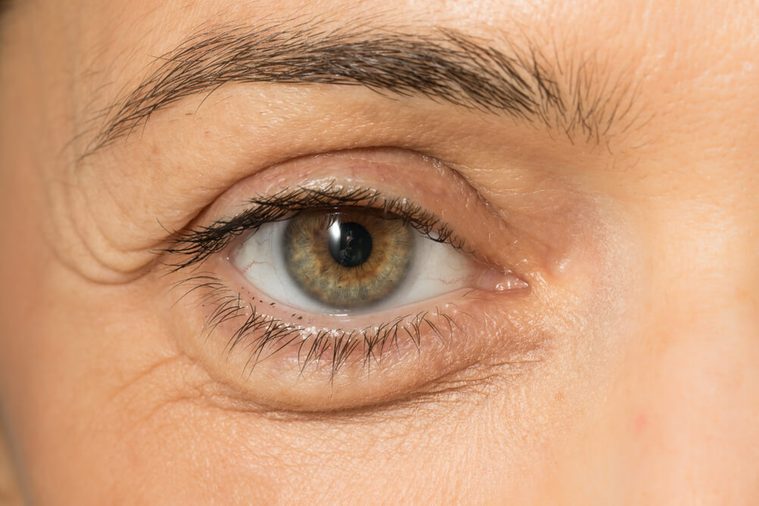
You’ve noticed crow’s feet
These fine lines around your eyes may be the first sign that your skin is starting to age early. (Make sure you’re avoiding these everyday habits that cause wrinkles.) “The dermis is the layer that is responsible for keeping our skin tight, firm, and free of fine lines,” Dr. Bowe says. “As we age, cell renewal begins to slow, the skin’s outermost stratum corneum thickens, and elastin fibers in the dermis fall into disarray.” Boost your collagen, which fills in these lines and gives skin more plumpness, with products containing ingredients like peptides, growth factors, and stem cells, she says.
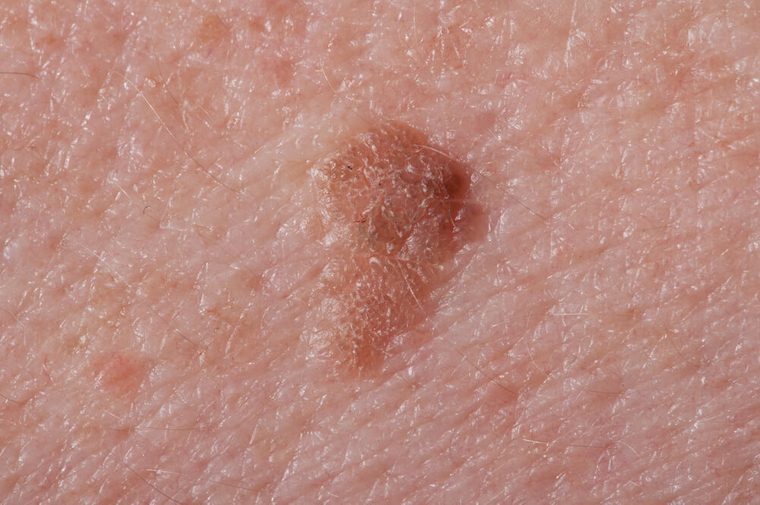
You have brown spots that aren’t from the sun
Warning, cell phone addicts: Your phone is aging your skin. You may think you’re protecting against sun damage, but the infrared and high energy visible light from your phone can also leave its mark on your face. “Certain wavelength of visible light, specifically blue light, which is emitted from our computers, televisions, tablets, smartphones, and even some indoor light bulbs, can also contribute to spots,” Dr. Bowe says. Plus, “new studies are demonstrating that women who live in urban areas and are exposed to higher levels of pollutants are more likely to develop brown spots on their skin.”
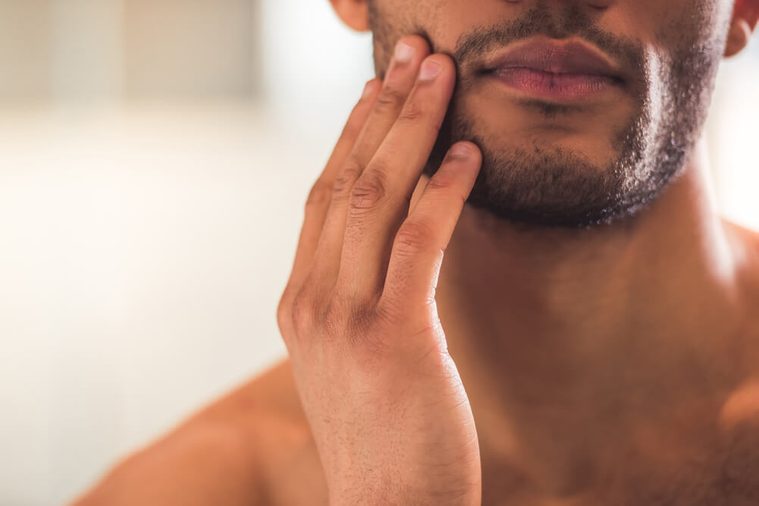
Your skin feels tight
This one common skin-care mistake is ruining your face: washing it too harshly. You might think that “tight” feeling after washing is a sign of firmness, but you actually want your skin to be supple, nourished, and flexible. “If your skin feels tight or squeaky clean after you cleanse, you are actually damaging the skin’s healthy barrier and drying the skin out,” Dr. Bowe says. “Make sure to use a cleanser that doesn’t strip skin of its natural oils—instead opt for gentle, hydrating cleansers that moisturize as they cleanse, like Dove’s beauty bar.”
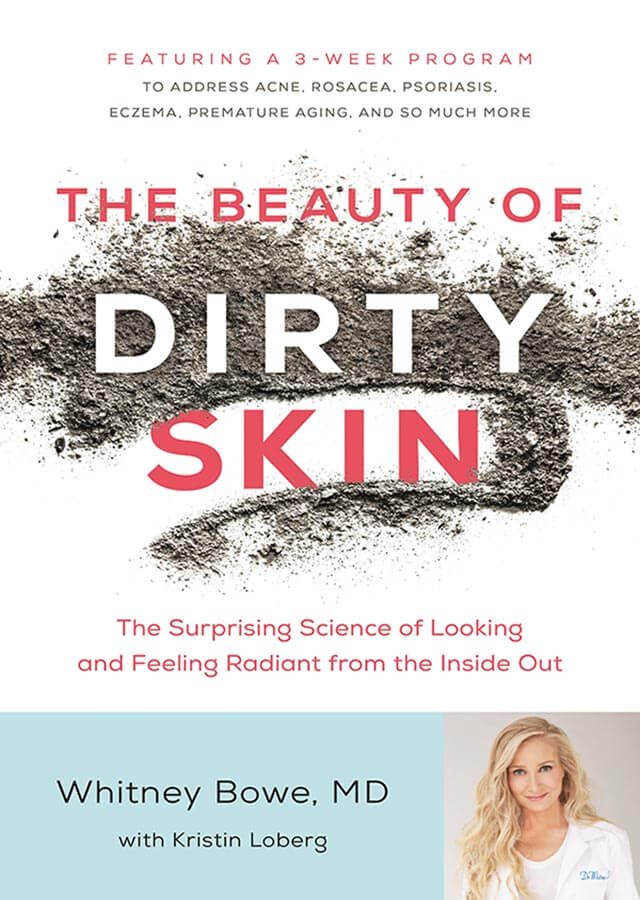
Wrinkles are starting to appear
If you’re starting to suddenly notice wrinkles that weren’t there before, remember you are what you eat—or your skin is, according to research. “As I discuss in detail in my book, The Beauty of Dirty Skin, there is some very compelling evidence about how diet can stave off wrinkles,” Dr. Bowe says. Vitamin C fights UV damage, lycopene stabilizes DNA in cells, polyphenols repair damaged skin, and zinc and vitamin E act as antioxidants. Whole foods like fruits, vegetables, beans, and nuts contain these important nutrients, and adding them to your diet can protect your skin from the damage that leads to wrinkles.
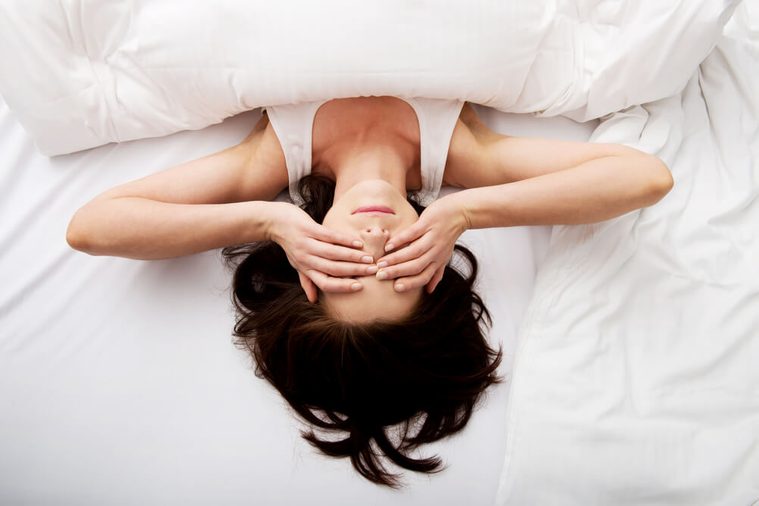
You look worn out
According to studies, a haggard appearance can be caused by an unlikely culprit: sugar. “Sugar impacts your skin through myriad pathways in the body, such as spiking insulin and inflammation,” Dr. Bowe says. Plus, glycation, the bonding of sugar to other molecules, makes proteins stiff, damaged, and susceptible to free radicals. “Imagine what that does to the proteins in your skin!” Dr. Bowe says. “This bonding is a prominent feature of aging.” Collagen and elastin, the fibers that keep skin firm and elastic, are among the most vulnerable proteins in this process, she says. Check out the things that happen to your body when you stop eating sugar.
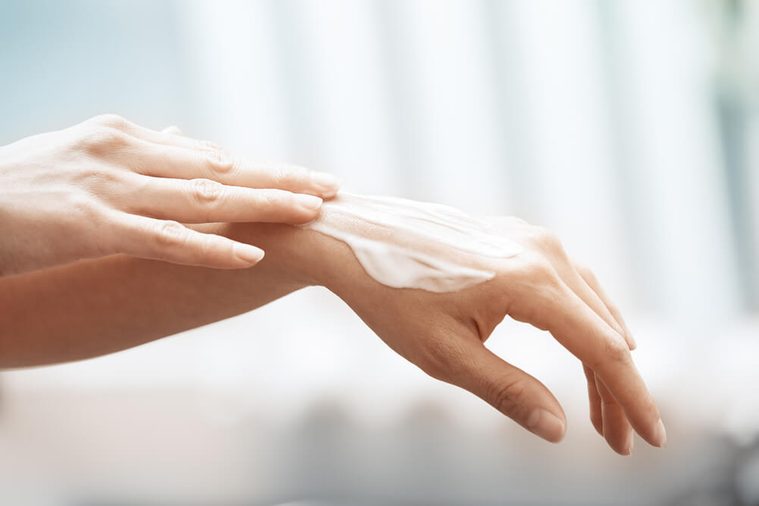
You’ve lost your “glow”
As the rate at which cells rejuvenate slows, your face loses radiance and can make you look less youthful. To retain that healthy glow, Dr. Bowe suggests an over-the-counter retinol. “Retinoids are heavily researched and proven to boost your skin’s health and appearance,” she says. “Vitamin A-based retinoids normalize cell turnover—a process that slows with age—to promote clear, smooth, radiant, even-toned, healthy skin.” But, you can’t use these products while pregnant or nursing (pregnancy will give you its own glow anyway!). Find out other products skin-care gurus can’t live without.
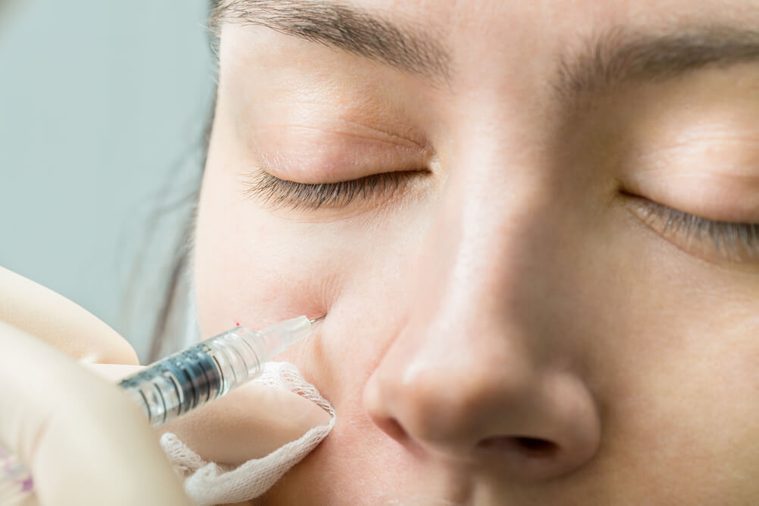
Your cheeks are sagging
If you feel like you’ve begun to take on a hollow appearance, it might be because you’re losing fat below your skin. “This layer of fat supports and cushions the skin, giving us our plump, youthful contours—however, as we mature, we lose volume in this layer,” Dr. Bowe says. Gaining a few pounds may help, but Dr. Bowe says to also consider facial fillers. “Additionally, research is showing that facial yoga might help,” she says. A recent study from Northwestern showed a facial exercise program made middle-aged women’s cheeks appear fuller and more youthful. Read about more new skin tightening treatments that really work.
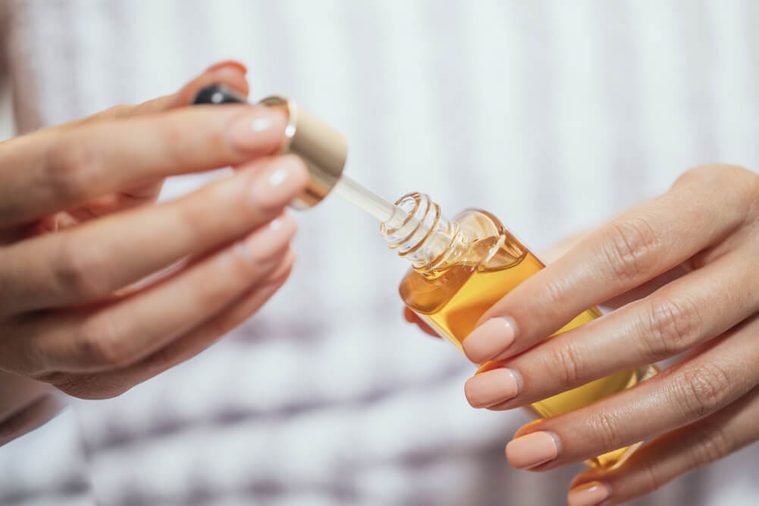
Your skin has a papery texture
Even though you’re not yet elderly, prematurely aging skin may start to look as thin as your grandmother’s. “Two things contribute to that fragile, paper-like texture that develops on the skin,” Dr. Bowe says. “First, levels of calcium, which is critical for keeping the skin firm, drop as our skin matures. Second, the pH of the skin climbs.” These pH changes can eat away at collagen. Dr. Bowe suggests using a serum with calcium amino acids and peptides. Also, adjust your pH using a moisturizer with probiotics. “Probiotics restore enzyme activity closer to that of young, healthy skin,” she says. Here are the best serums to solve all your skin problems.
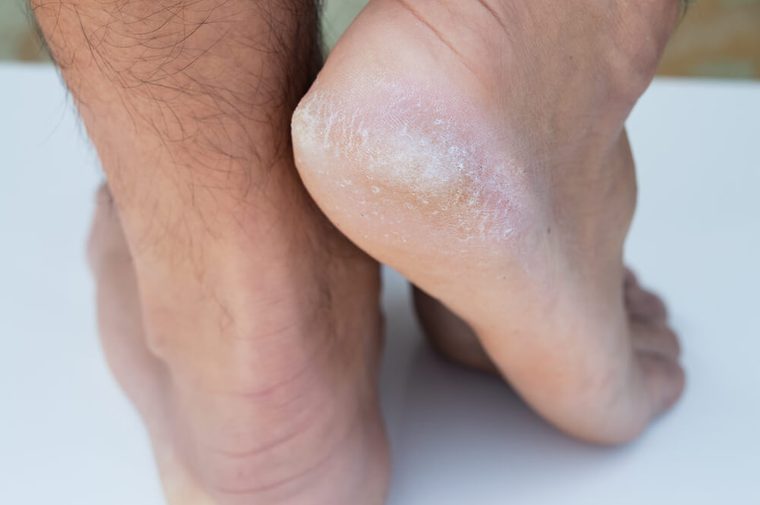
You have rough patches
Hardened skin can happen after too long in a dried-out state. “When skin gets dry or inflamed, it tries to protect itself by piling on extra layers of dead skin cells,” Dr. Bowe says. “The outermost layer of the skin, called the stratum corneum, gets thicker and that makes the skin feel rough.” This piling up can also be a symptom of psoriasis, which speeds up the life cycle of skin cells. To treat it, Dr. Bowe recommends the therapeutic botanicals in MetaDerm. And try the best skin-care routine for psoriasis.
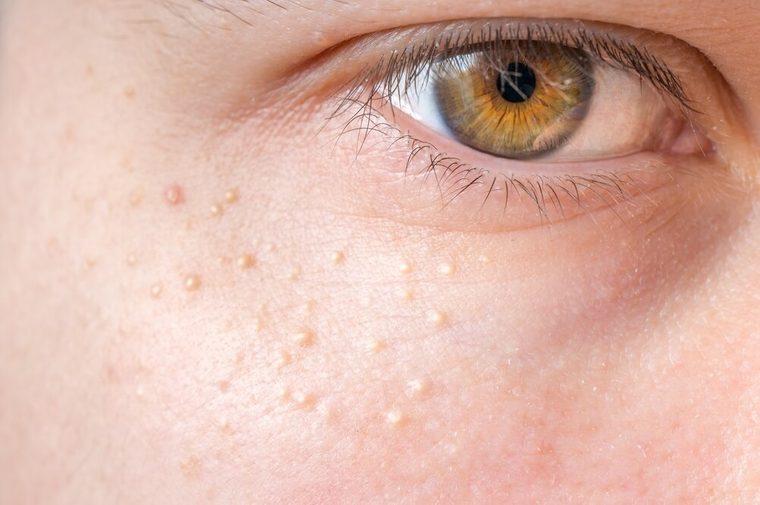
You’re getting tiny little bumps
This is one of those skin conditions that look like acne but aren’t. Tiny white or flesh-colored bumps called milia are caused by buildup from sun damage or harsh face products. “Milia are small cysts filled with a protein called keratin, and form as a result of the skin’s localized inability to exfoliate naturally,” Dr. Bowe says. “To address milia, look for products that promote gentle exfoliation and cell turnover,” which may contain the ingredients glycolic acid or retinol. Also, remember to use sunscreen.
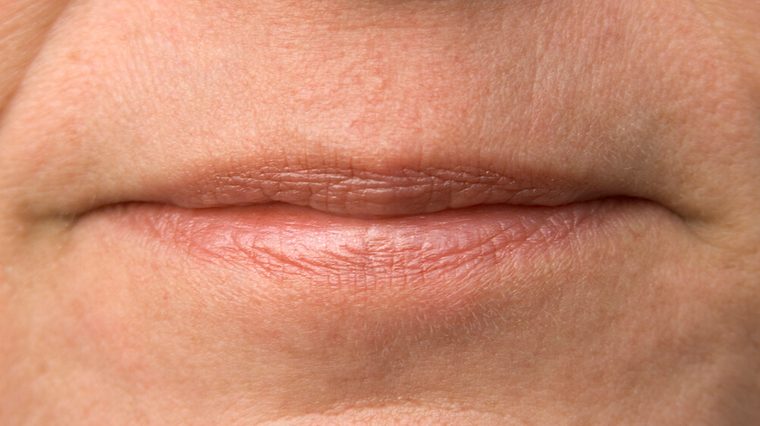
Your lips are thinning out
Collagen also affects the fullness of your lips, and as you lose it your lips may deflate. Before you head for an injection of lip fillers, try using a lip product with sunscreen to protect your pout. “Prevention of sun damage is the best thing people can do to reduce signs of aging on the lips and around the mouth,” dermatologist Madeline C. Krauss, MD, told the American Academy of Dermatology. If you want to go the professional route, here’s what a dermatologist would do for lip lines.
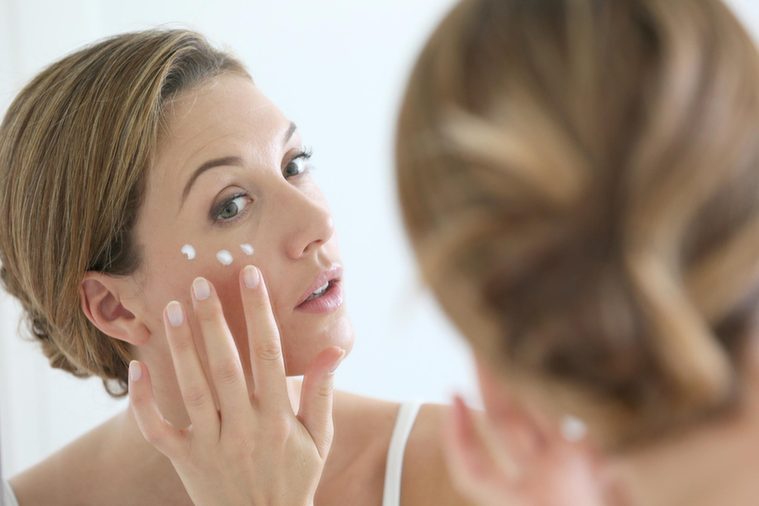
You’ve noticed puffy, dark eyes
Do you need these remedies to treat the dark circles under your eyes? Because the skin around your eyes is very delicate, it’s prone to change and may start to look older with heavy eyelids, puffiness, and darkness underneath. “Our superficial fat pads tend to separate as we age and cause the undereye puffiness to become more pronounced,” Dr. Bowe says. “Often, bags under your eyes means the skin around them is retaining fluid.” Try cutting down on salt and alcohol, and get enough sleep. Dr. Bowe also suggests eye creams containing hyaluronic acid, glycerin, and vitamin C. Also, “anti-inflammatory ingredients like caffeine can help to constrict your blood vessels and improve circulation,” she says.
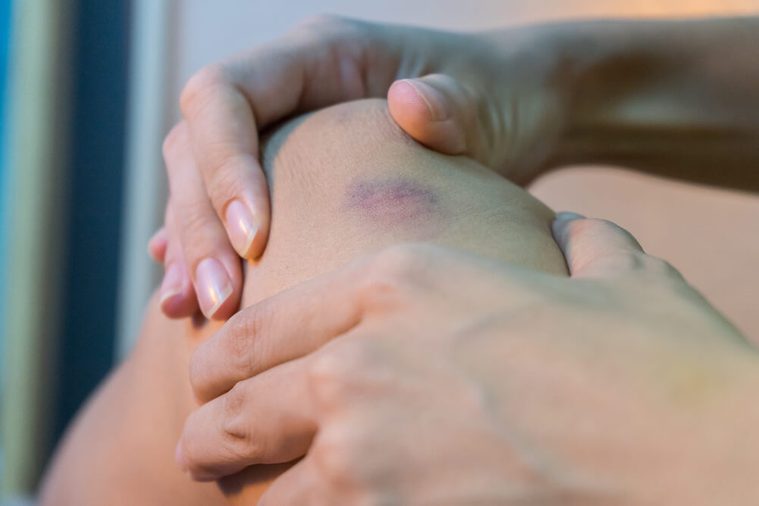
Your skin is easily damaged
According to the U.S. National Library of Medicine, aging skin is more vulnerable to injury, and can be up to four times slower to heal—and sun damage can accelerate this process. Thinner, more fragile skin without as much of a protective fat layer can put you at risk; and in addition, fragile blood vessels under the skin can break more easily. Here’s the doctor-approved way to get rid of bruises, ASAP.
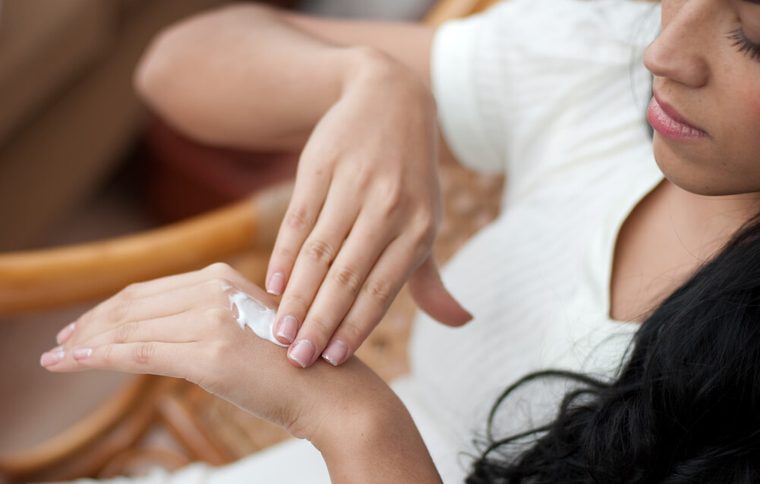
You’ve developed skin cancer
Skin damage doesn’t just manifest itself in your appearance—it can have life-threatening effects. “When our skin is exposed to so many stressors that its protective and reparative mechanisms are simply over-burdened, that’s when we see the progression from a healthy skin cell, to an atypical cell, to a cancerous cell,” Dr. Bowe says. “The most important thing you can do to protect your skin against skin cancer is to wear a broad spectrum sunscreen every single day.” She also recommends the antioxidant supplement Heliocare to neutralize free radicals in your skin. Here are surprising facts about skin cancer everyone should know.
